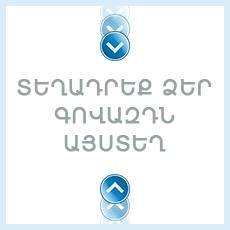Դիպլոմային Semantic and Structural Peculiarities of Tag Questions in English and their Equivalents in Armenian
Բովանդակություն
Introduction
Chapter 1
1.1. Types of Interrogative Sentences in English
1.2 Other Means of expressing interrogation in English
Chapter 2. Tag Questions in English
2.1. Formation and Usage of Tag Questions
2.2. Intonational Patterns of Tag Questions
2.3. Different Patterns of Forming Tag Questions in British and American English
Chapter 3. Structural, Communicative Peculiarities of Tag Questions in English and their Expressions in Armenian
3.1. Structural peculiarities of tag questions in English and Armenian
3.2. Communicative peculiarities of Tag Questions in English and Armenian
Conclusion
Հատված
According to Kobrina, from the viewpoint of their role in the process of communication sentences are divided into four types, grammatically marked: declarative, interrogative, imperative, exclamatory sentences (Кобрина Н. А: 1999, 212). These types differ in the aim of communication and express statements, questions, commands and exclamations respectively. These types are usually applied to simple sentences. In a complex sentence the communicative type depends upon that of the main clause.
Examples: The two ships becalmed on a torpid sea./ statement (Кобрина Н. А: 1999, 6).
What do you want, Master Reed?՚/question (Кобрина Н. А: 1999, 7).
According to Ilyish, types of communication the sentences are classified the following way: a) Declarative; b) Interrogative; c) Imperative. (Ильиш Б.А: 1971, 186). Sentences belonging to the several types differ from each other in some grammatical points. Thus, interrogative sentences are characterized by a special word order. In interrogative sentences very few modal words are used, as the meanings of some modal words are incompatible with the meaning of an interrogative sentence. It is clear that modal words expressing full certainty, such as certainly, surely, naturally, etc., cannot appear in a sentence expressing a question. On the other hand, the modal word indeed, with its peculiar shades of meaning, is quite possible in interrogative sentences. (Ильиш Б.А: 1971, 187)
Interrogative sentences are so varied with their grammatical contents and structure also with grammatical usage, that the base of their distinguish can be considered not only the interrogative intonation, but also inverted word order and interrogative pronoun, which are presented differently in different interrogative sentences (predicate-subject word order is considered to be inverted word order in an affirmative sentence.
Imperative sentences also show marked peculiarities in the use of modal words. It is quite evident, for example, that modal words expressing possibility, such as perhaps, maybe, possibly, are incompatible with the notion of order or request. Indeed, modal words are hardly used at all in imperative sentences.
The notion of exclamatory sentences and their relation to the three established types of declarative, interrogative, and imperative sentences presents some difficulty. It would seem that the best way to deal with it is this. On the one hand, every sentence, whether narrative, interrogative, or imperative, may be exclamatory at the same time, that is, it may convey the speaker՚s feelings and be characterised by emphatic intonation and by an exclamation mark in writing. This may be seen in the following examples: Bat he can՚t do anything to you! Scarlett, spare me! (Ильиш Б.А: 1971, 57).On the other hand, a sentence may be purely exclamatory, that is it may not belong to any of the three types classed above. This would be the case in the following examples: “Well, fiddle-dee-dee!” said Scarlett. (Ильиш Б.А: 1971, 58)
Գրականության ցանկ
1. Algeo, Tag questions in British and American English, 1990
2. Barber Ch., Linguistic change in Present-Day English, Edinburgh, 1964
3. Biber Douglas et al., Tags in English, Pearson Education Limited, New York, 1999
4. Culicover P. W., English tag questions in universal grammar, Lingua 88, 1992.
5. Downing Angela, English Grammar: A University Course. Taylor & Francis, 2006
6. Geoff Parkes et al., Myths about the English Language, England Books, London, 1989.
7. Groenendijk J. and Stokhof M., Studies on the Semantics of Questions and the Pragmatics of Answers, PhD thesis, University of Amsterdam, Amsterdam, the Netherlands, 1984.
8. Kimps A., A typology. Text and Talk, 2007
9. Krug Manfred, The Syntax of the Confirmatory Pragmatic Particle Innit, 1998
10. Quirk R., Greenbaum S., Leech G. and Svartvik J, A Comprehensive Grammar of the English Language, Longman Publishers, London. 1985.

